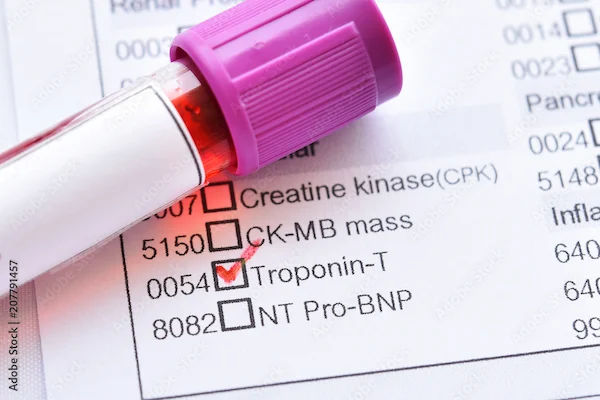- Male
- 32 Years
- 22/01/2025
I'm 33 years old and my doctor prescribed bisoprolol 2.5 mg for a month. I came across something that said beta blockers are usually a lifelong medication. Is that true? Can you help clarify how long I might need to be on it? I've got a lot of questions about its long-term effects and what it means for my health.
Answered by 1 Apollo Doctors
Bisoheart 2.5 is a brand name for the drug Bisoprolol, which is a beta blocker. Beta blockers are commonly used for various heart conditions such as high blood pressure, angina, and heart failure. Whether beta blockers need to be taken permanently depends on the individual's condition and the recommendation of their healthcare provider. In some cases, beta blockers may be prescribed for long-term use to manage a chronic condition, while in other cases they may be used for a specific period of time. It is important to follow your doctor's advice regarding the duration of treatment with bisoheart 2.5.
Dr. Dr Khaleel Suggests...
Consult a Cardiologist
Answered 04/07/2025
0
0

More Cardiology Health Queries
View allI'm really worried because my uncle just had a heart attack and we're in a different country than he is. He's been in intensive care for around 6 hours now. Does that mean it's not life-threatening anymore? How long do people usually survive after having a heart attack? Just trying to understand what we should expect.
The time elapsed since the heart attack occurred is an important factor in determining the prognosis. The first few hours after a heart attack are critical, and the sooner medical treatment is received, the better the chances of survival and recovery. Being in intensive care means that he is receiving close monitoring and specialized care to address any complications that may arise. It is difficult to predict the outcome without knowing the specific details of his case, but being in intensive care is a positive sign that he is receiving the necessary treatment. It is important to follow the advice of the medical team caring for your uncle.
Answered by 1 Apollo Doctors
I'm a bit concerned about my echocardiography results. It mentions "Grade I LV diastolic dysfunction" and "Trace AR." Can you explain what these mean? Like, how serious is this, and what should I be thinking about or doing next?
Grade I diastolic dysfunction means there is mild impairment in the relaxation of the left ventricle. As for trace aortic regurgitation, it indicates a small amount of blood leaking back into the heart's left ventricle during the relaxation phase. For Grade I LV diastolic dysfunction, you may be prescribed medications such as ACE inhibitors like Lisinopril 10mg once daily to help with blood pressure control and heart function. For trace AR, you may not need any specific treatment but regular monitoring by your healthcare provider is recommended.
Answered by 1 Apollo Doctors
I'm experiencing these needle-like pains on the left side of my chest for just a split second. There's no sweating or weakness accompanying it. I've also noticed that when I take EVION LC or any vitamin E supplement, my vision gets a bit blurry. Is this something I should be concerned about?
The needle pain in your left side of the chest for a few seconds could be due to muscle spasms or nerve irritation. It is reassuring that you are not experiencing sweating or weakness along with it. However, the blurred vision you experience after taking EVION LC or any vitamin E supplement is concerning and should be addressed. I recommend stopping the use of EVION LC or any vitamin E supplement and consulting with your healthcare provider. They may suggest an alternative supplement or investigate further to determine the cause of your symptoms
Answered by 1 Apollo Doctors
Disclaimer: Answers on Apollo 247 are not intended to replace your doctor advice. Always seek help of a professional doctor in case of an medical emergency or ailment.



_3.webp)

